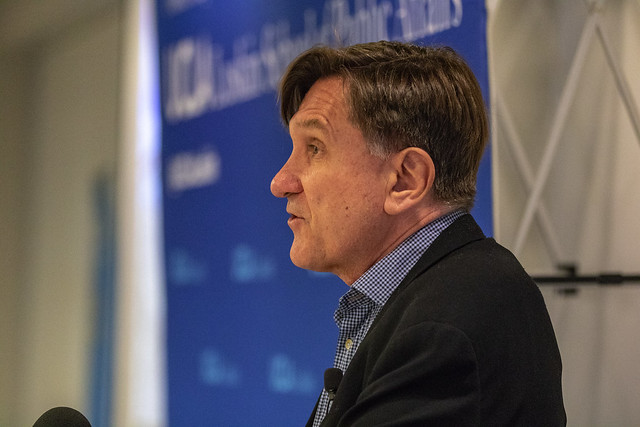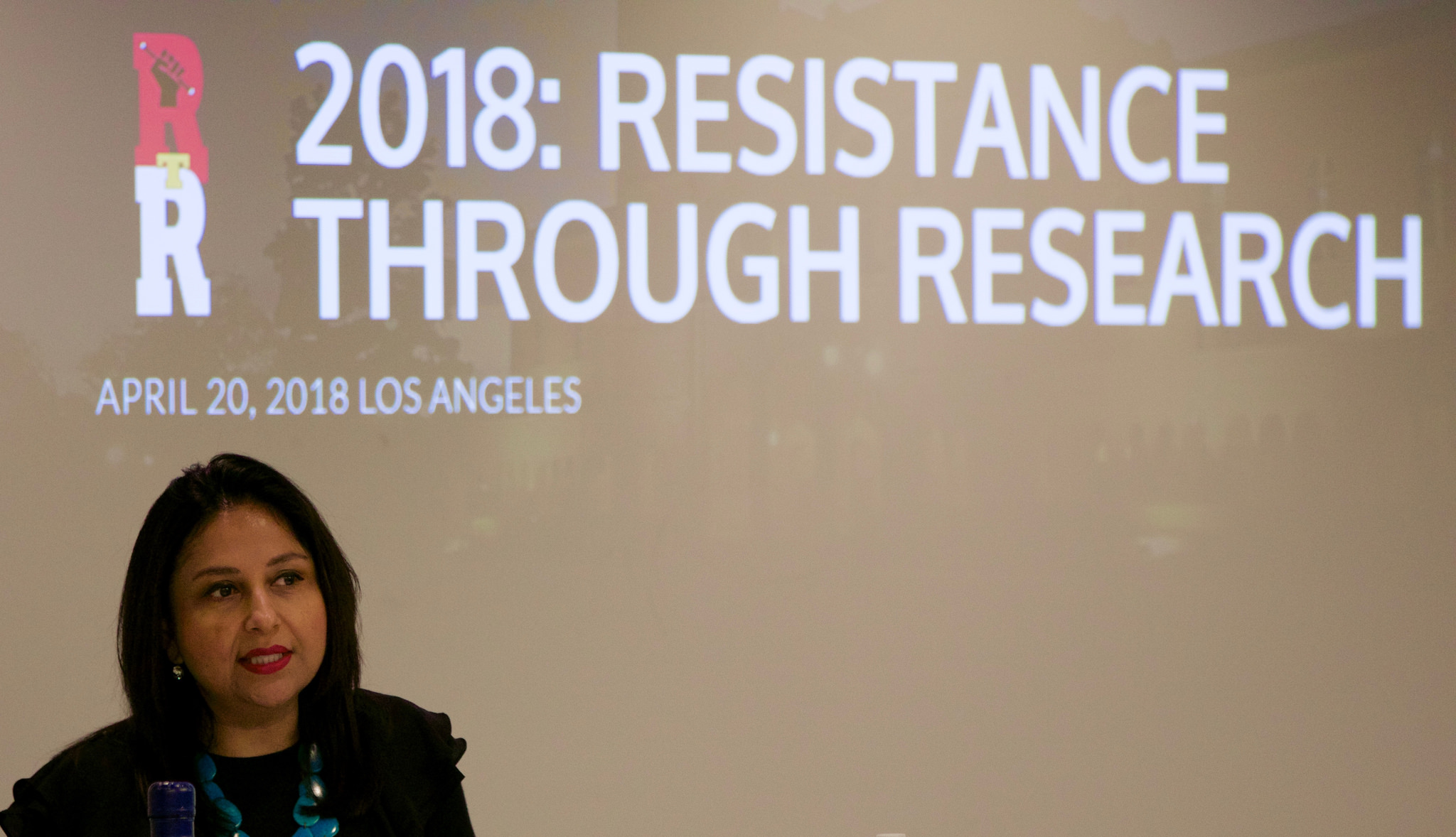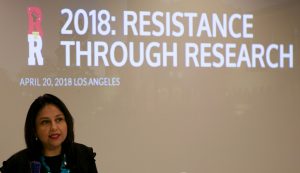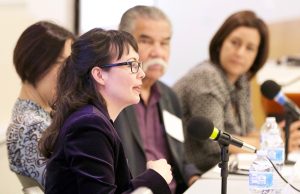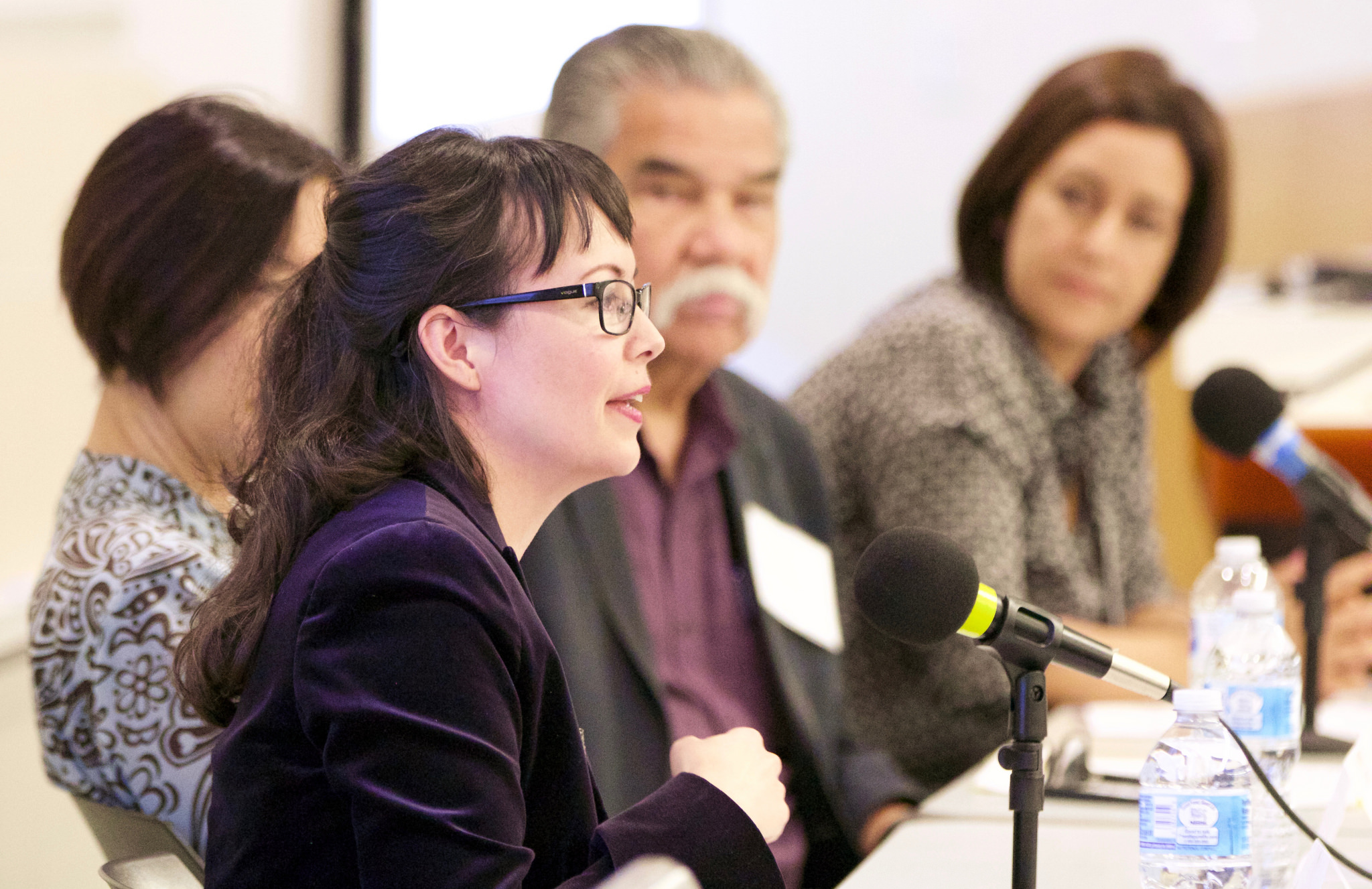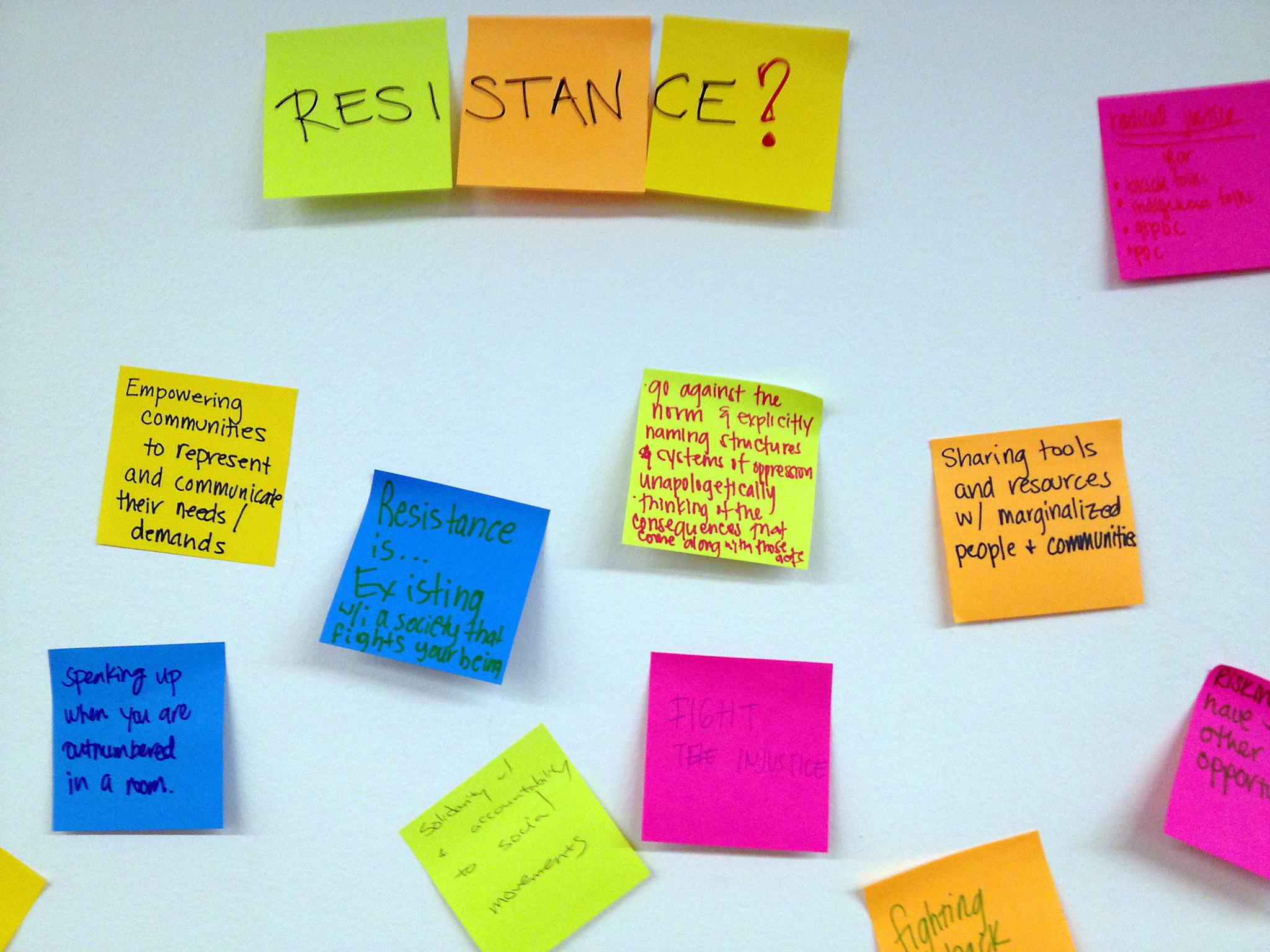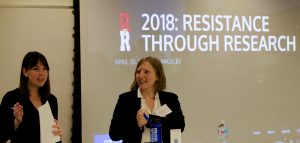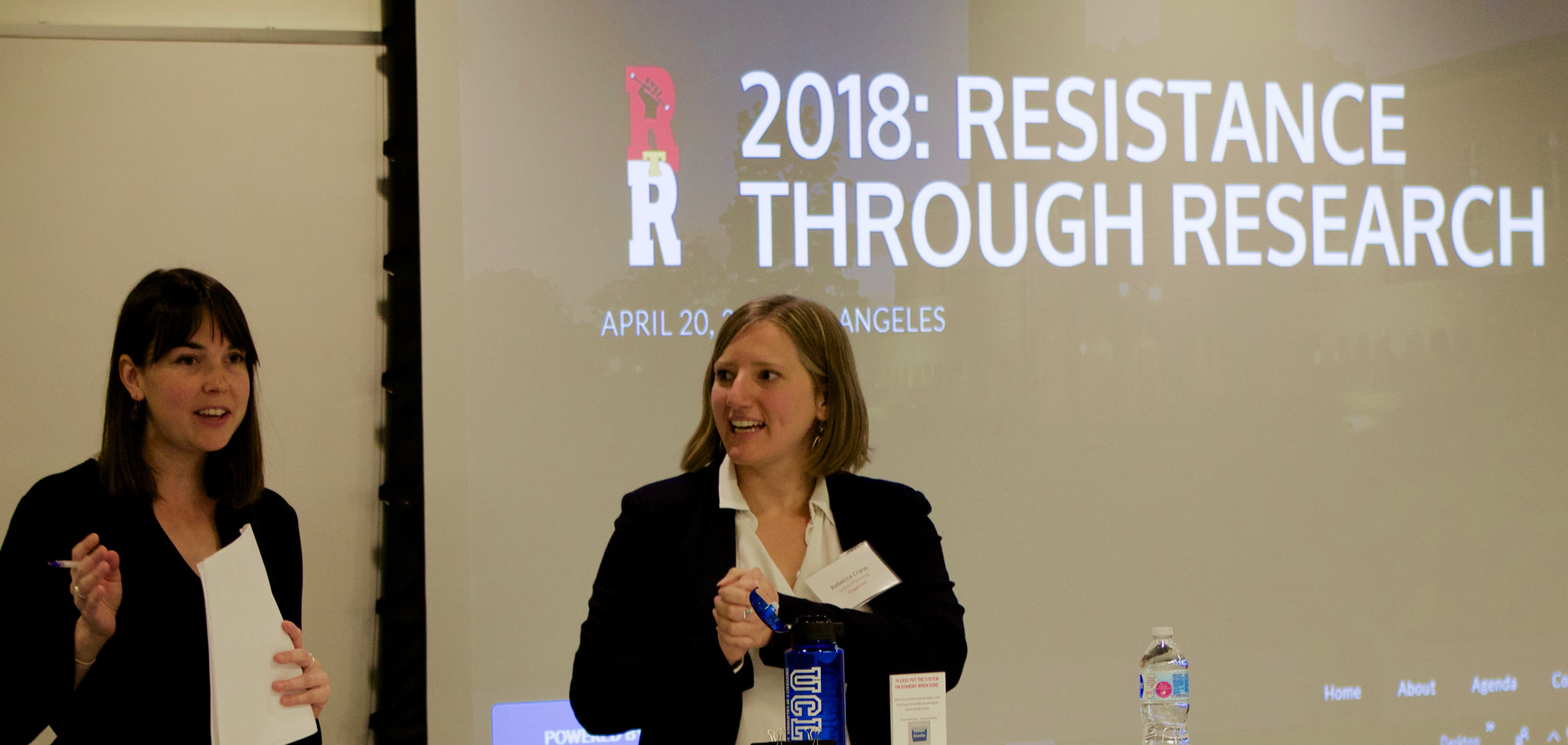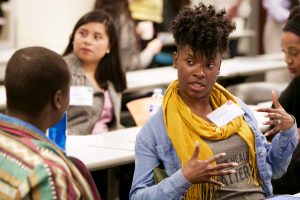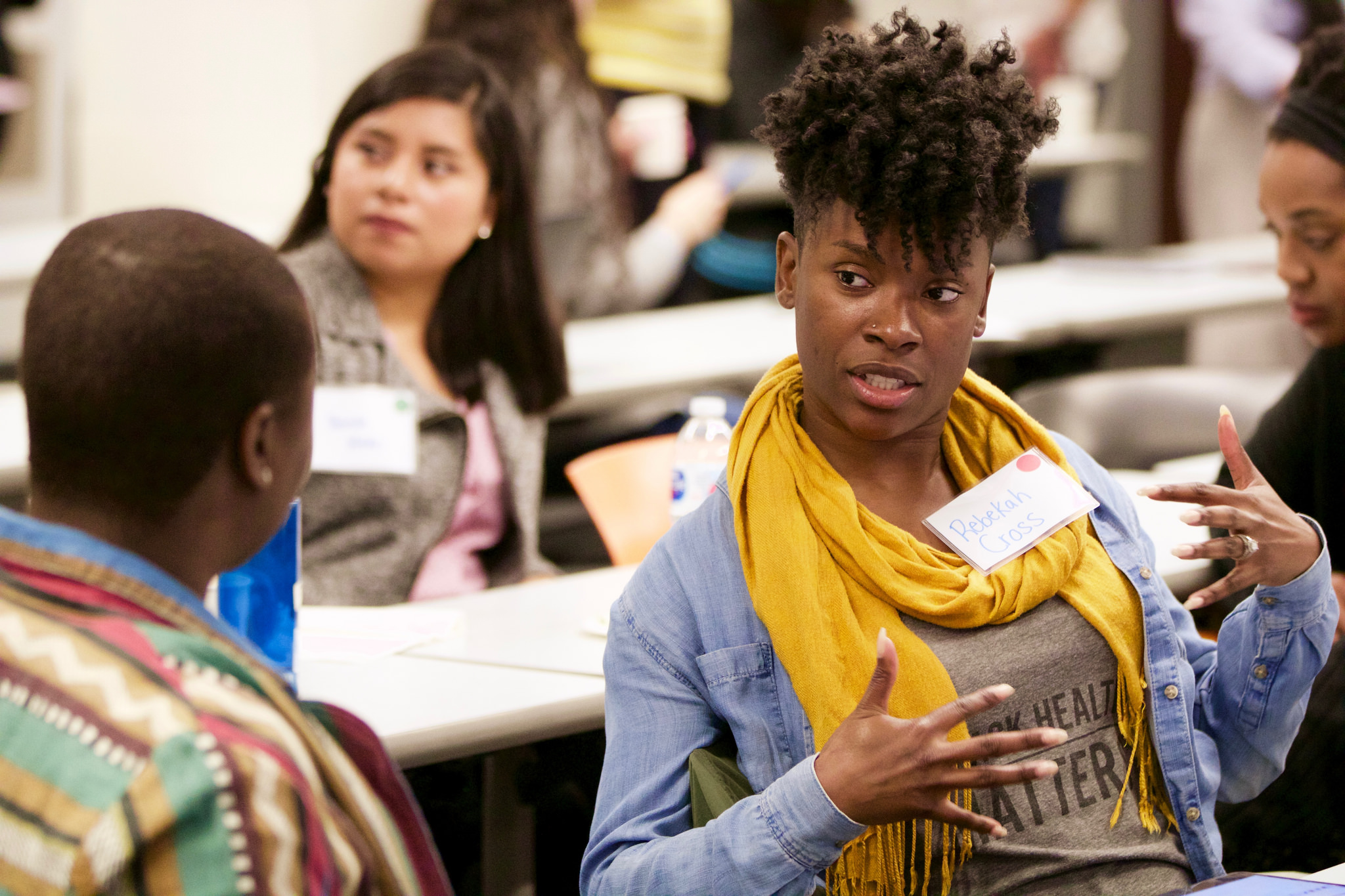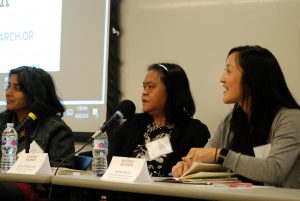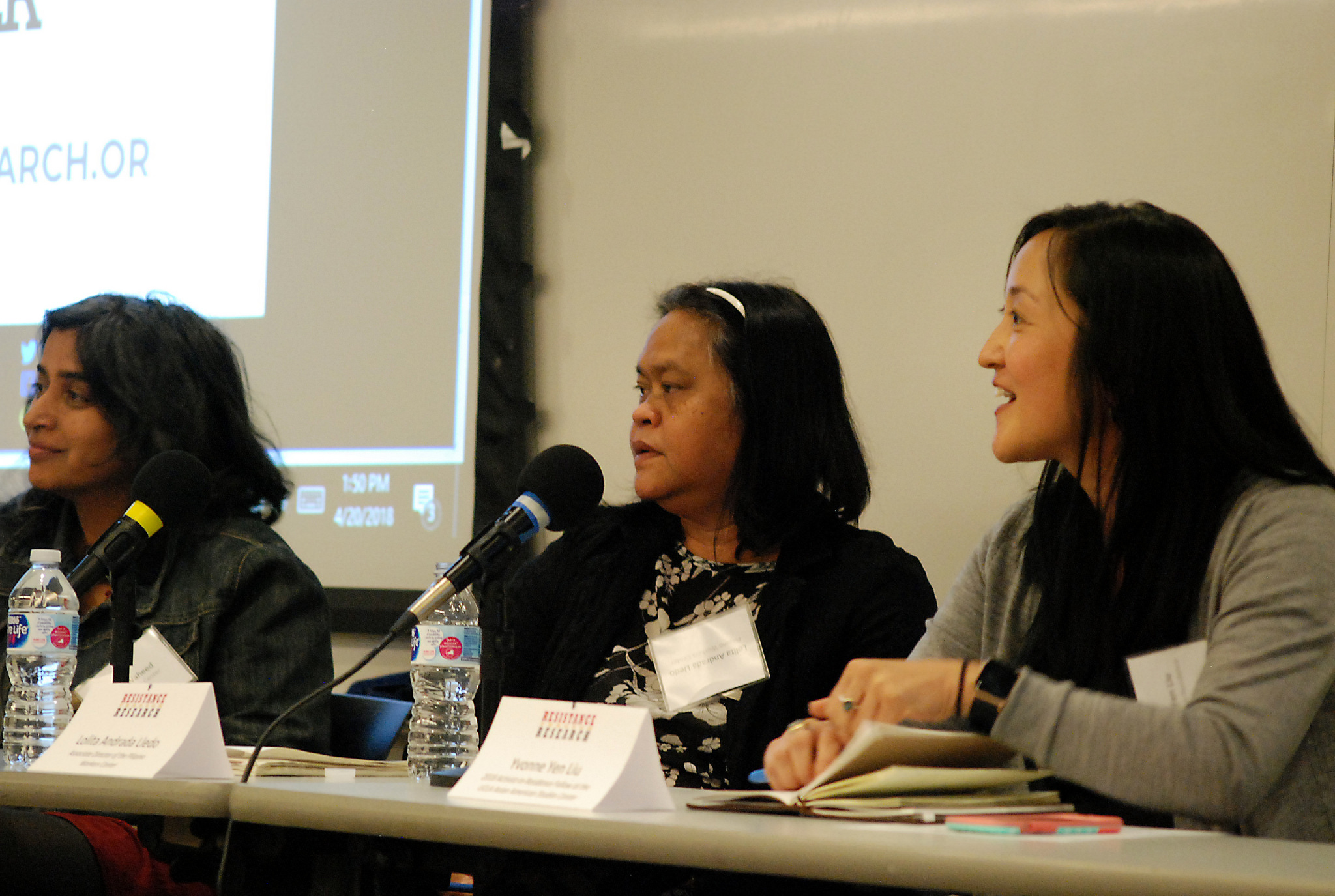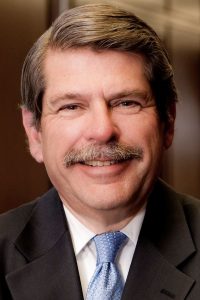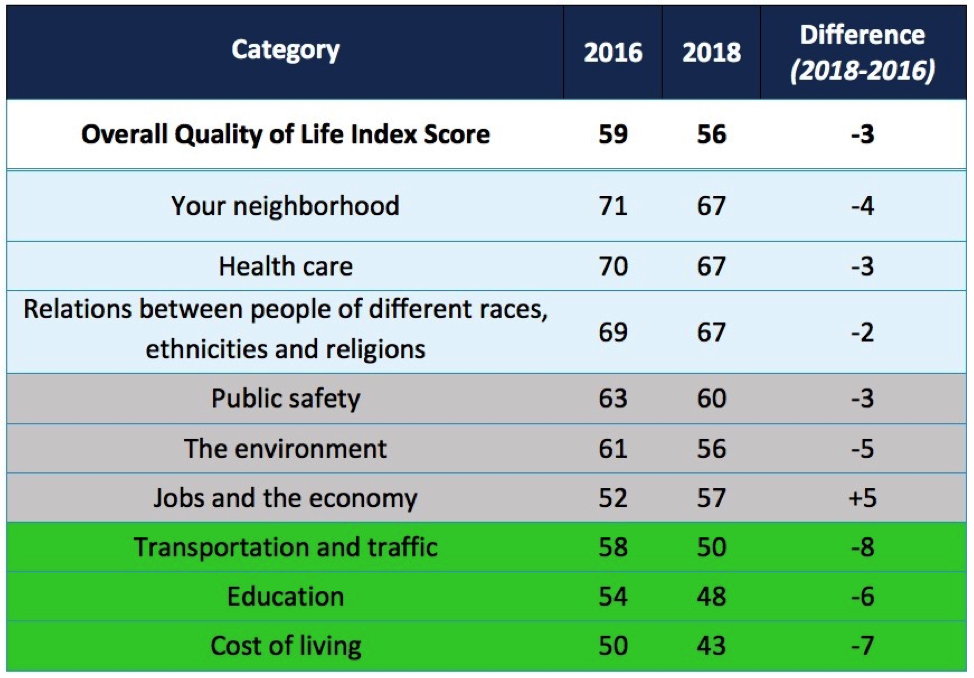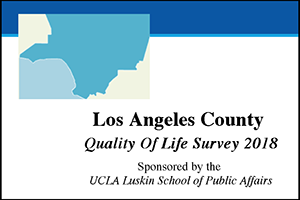By Stan Paul
For urban planning, social welfare and education doctoral students at UCLA, the results of the 2016 election added a new urgency to their role as researchers and to their research agendas.
In response to the rhetoric and policies of the Trump administration following the inauguration, a working group was formed to discuss questions of concern for upcoming scholars in UCLA’s academic and professional programs who are — and will be — working directly with individuals and groups in diverse communities.
This year, the group’s efforts culminated in “Resistance through Research: Social Justice Research and Activism in the Trump Era,” a conference held April 20, 2018, at the UCLA Luskin School of Public Affairs.
“As Ph.D. students in the professional schools, we conduct research on issues of race, gender and class-based discrimination, and we critically examine the opportunities that people have to participate in the institutions that shape their lives,” said Rebecca Crane, an Urban Planning doctoral student and one of the event organizers. “We decided to start a working group to discuss these issues which we hope will create dialogue around the notion of a politically engaged research agenda and its potential to challenge inequality now in this political moment.”
Ananya Roy, director of the Institute on Inequality and Democracy at UCLA Luskin, provided opening remarks.
“Urgency for resistance is not new, but rather persistent,” said Roy, a professor of urban planning, social welfare and geography. “The phenomenon of Trumpism is not unique to the United States.” Rather, it is something that must be treated “as a rupture in the fabric of the world.”
But, she added: “The question is whether we, scholars rooted in academia, have stepped up … whether the global university, a command and control node of knowledge production, can be committed to such forms of research.”
And, Roy pointed out, academic fields and institutions that produce knowledge are not exempt from examination or resistance.
“For me, resistance within, against and from the university has meant a politics of alliance, solidarity and collectivism. It has meant taking and exercising academic freedom through a very visible politics of building collectivity, of building a commons.”
However, she cautioned the room full of students and researchers, “There’s a hell of a lot of risk ahead of you.”
The conference also included a panel focused on research methods illustrating theoretical and political points of departure and avenues in academic research. Panelists represented different career stages from new Ph.D.s to veteran scholars and educators.
Daniel Solórzano, a longtime professor of Education and Chicano/a Studies at UCLA, recalled early in his academic career his decision to go against the grain — and against the advice of senior scholars — to “challenge the dominant frames.” Solórzano whose teaching and research interests include critical race theory, agreed that “the issues are something that are not new,” crediting his students with helping him advance important work and fields of inquiry. “I need a diverse student population to move this work forward.”
Also on the methods panel was Nina Flores, who completed her doctorate in urban planning at UCLA Luskin in 2016. Flores, now an assistant professor of Social and Cultural Analysis at California State University Long Beach, also discussed the challenge and benefits of “push-back.”
“Find your people,” she said, citing her work and collaboration with longtime UCLA Luskin Urban Planning faculty members Leo Estrada and the late Jacqueline Leavitt. By finding the right people to work with, Flores said, “the push-back can be creative,” as well as affirming.
Also making up the methods panel were Kristina Lovato-Hermann SW Ph.D. ’17, now assistant professor of social work at Cal State University Long Beach, and Karen Umemoto, professor of Urban Planning and Asian American Studies. Umemoto also serves as the inaugural holder of the Helen and Morgan Chu Endowed Director’s Chair in the UCLA Asian American Studies Center.
A second panel, devoted to research justice, included Saba Waheed, research director at the UCLA Labor Center; Yvonne Yen Liu, research director of the Solidarity Research Center in Los Angeles; and Lolita Andrada Lledo, associate director of the Los Angeles-based Pilipino Workers Center.
“We wanted today to be an opportunity to connect with people outside our departments who might be working on similar topics … as well as community-based researchers working on these topics,” Crane said.
In fact, a class of UCLA undergrads was able to take advantage of the knowledge shared at the conference. Diya Bose, a Ph.D. candidate in Sociology, brought students from her UCLA freshman cluster course on Interracial Dynamics in American Culture and Society.
“It was important for them to witness how the UCLA students are continuing to fight for justice and liberation through education, research and working with communities of color,” said Bose. “Following the Luskin event, my students shared with me that they felt inspired and empowered to participate in the UCLA community, not as passive consumers of knowledge, but as producers of knowledge.”
The conference also featured research workshops in three subgroups: Racial and Gender Justice, Public Services and Spaces, and Migration and Displacement.
“In my internship we do a lot of research and we partner with a lot of community organizations,” said Evelyn Larios, a second-year MSW student at UCLA. “So this is really nice because it really reinforces the idea that as we move forward in collective research we need to partner with communities to build that relationship.”
Larios added: “At some point it take compromise. That’s important to society and democracy in general.”
Click or swipe below to view more photos from this event on Flickr:
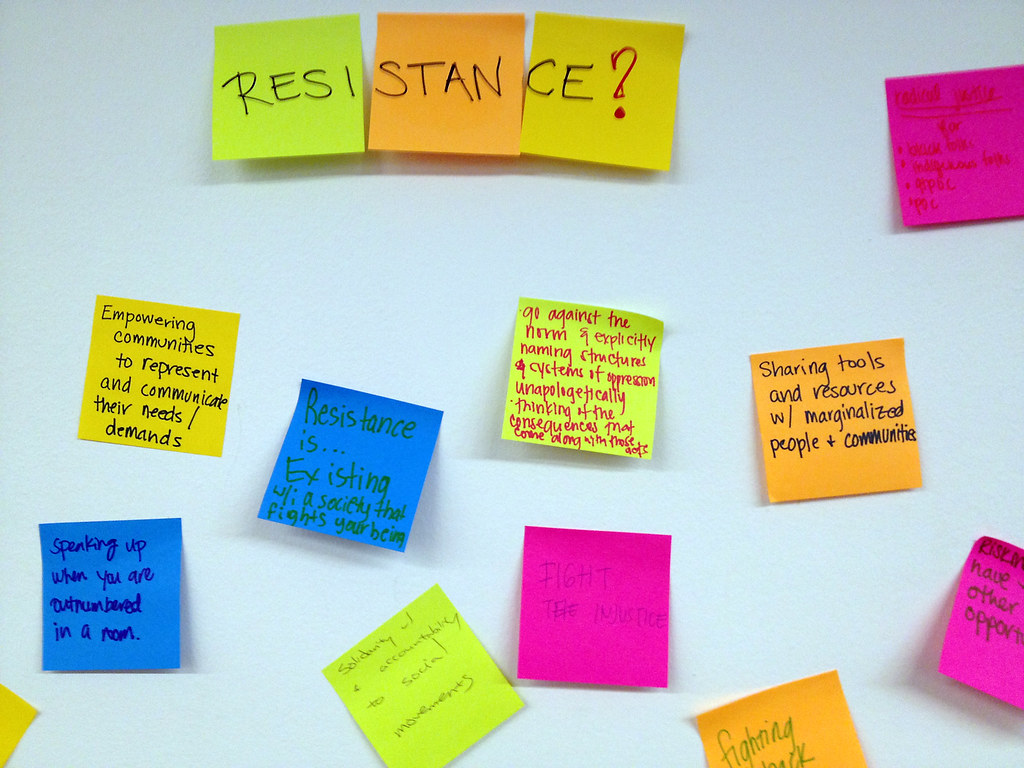
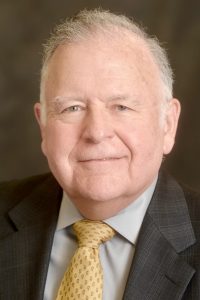
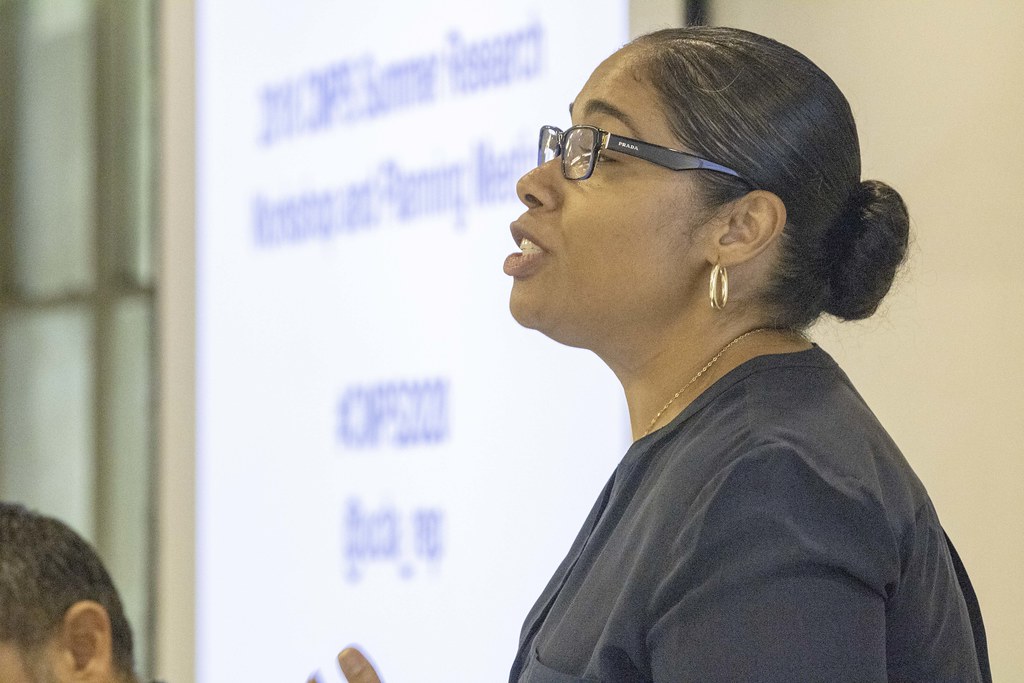
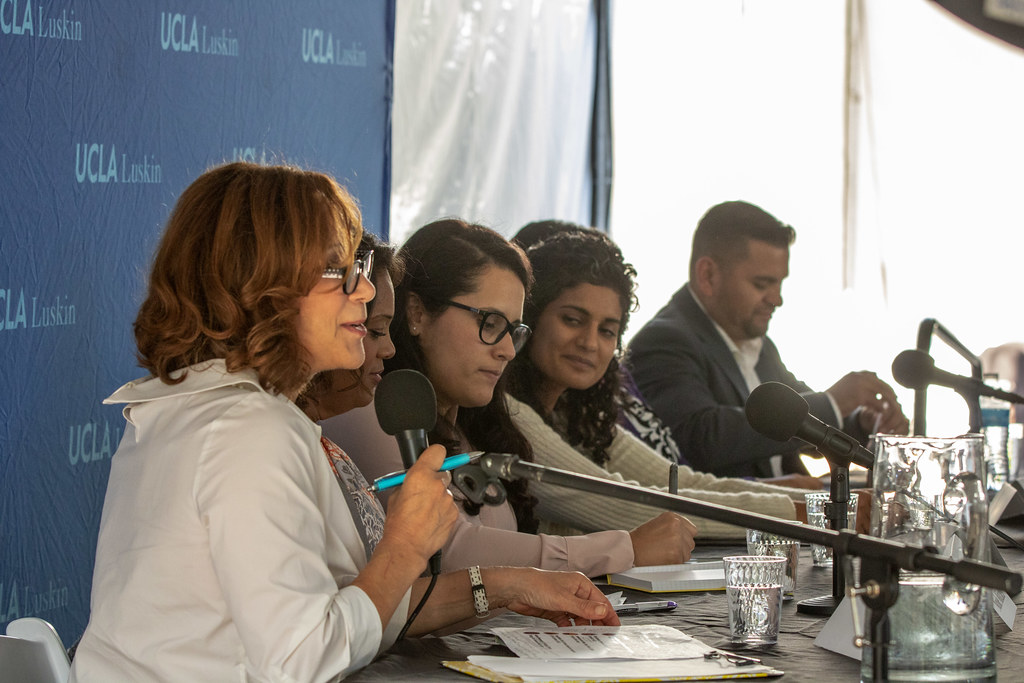
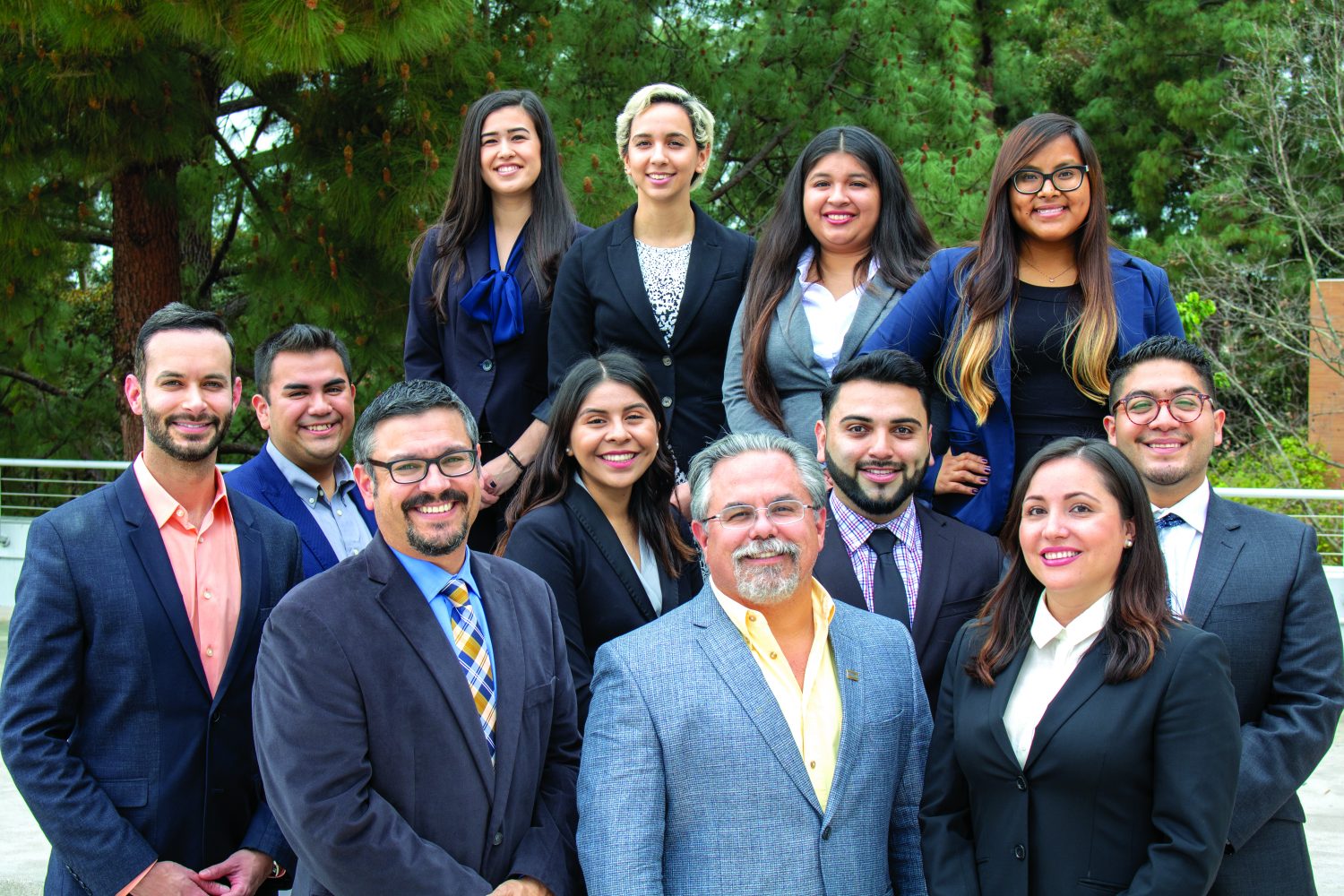

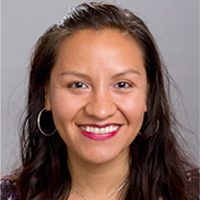 Amada Armenta: She is returning to UCLA where she completed her PhD in sociology, and will join Urban Planning in the fall. Armenta comes to UCLA from the University of Pennsylvania where she is an Assistant Professor of Sociology. Her work looks at immigration enforcement and its impact on the lives and communities affected. She is particularly interested in the intervention of the criminal justice system in immigration enforcement. She has been published in Social Problems and the Annual Review of Sociology, in addition to her University of California Press book, “Protect, Serve, and Deport: The Rise of Policing as Immigration Enforcement.”
Amada Armenta: She is returning to UCLA where she completed her PhD in sociology, and will join Urban Planning in the fall. Armenta comes to UCLA from the University of Pennsylvania where she is an Assistant Professor of Sociology. Her work looks at immigration enforcement and its impact on the lives and communities affected. She is particularly interested in the intervention of the criminal justice system in immigration enforcement. She has been published in Social Problems and the Annual Review of Sociology, in addition to her University of California Press book, “Protect, Serve, and Deport: The Rise of Policing as Immigration Enforcement.”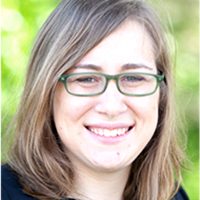 Natalie Bau: She is an international economist currently at the University of Toronto and will be joining Public Policy. Bau’s work examines several different aspects of the economics of education and educational policies and their downstream implications, including the effects on marriage patterns, teacher pay, student achievement and motivation, and others. She has projects in the works including “The Misallocation of Pay and Productivity in the Public Sector: Evidence from the Labor Market for Teachers” as well as “Labour Coercion and Economic Growth: Evidence from the Harrying of the North.”
Natalie Bau: She is an international economist currently at the University of Toronto and will be joining Public Policy. Bau’s work examines several different aspects of the economics of education and educational policies and their downstream implications, including the effects on marriage patterns, teacher pay, student achievement and motivation, and others. She has projects in the works including “The Misallocation of Pay and Productivity in the Public Sector: Evidence from the Labor Market for Teachers” as well as “Labour Coercion and Economic Growth: Evidence from the Harrying of the North.”
 Amy Ritterbusch: She will be joining Social Welfare. Ritterbusch is a human and urban geographer and currently an associate professor of government at the Universidad de los Andes in Bogotá, Colombia. Her work is focused on urban social justice movements, marginalized youth, substance abuse, prostitution and other downstream effects of child poverty. She also brings extensive expertise in field work, ethnographic methods and Latin American populations across the hemisphere. She has written several journal articles, which have been featured in Child, Abuse & Neglect, Global Public Health, Annals of the American Association of Geographers and other peer-reviewed journals.
Amy Ritterbusch: She will be joining Social Welfare. Ritterbusch is a human and urban geographer and currently an associate professor of government at the Universidad de los Andes in Bogotá, Colombia. Her work is focused on urban social justice movements, marginalized youth, substance abuse, prostitution and other downstream effects of child poverty. She also brings extensive expertise in field work, ethnographic methods and Latin American populations across the hemisphere. She has written several journal articles, which have been featured in Child, Abuse & Neglect, Global Public Health, Annals of the American Association of Geographers and other peer-reviewed journals.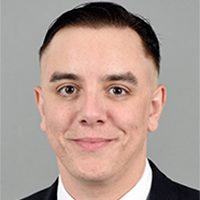 Carlos Santos: Currently an assistant professor in counseling psychology at ASU, Santos is coming to UCLA Luskin Social Welfare. His work is principally on gender and ethnic identities, stereotypes, and their impacts on social adjustment, educational performance and outcomes among adolescents in communities of color. He received his PhD from NYU and his work has been funded by NSF and NIH. In addition to his monograph “Studying Ethnic Identity” for the American Psychological Association, his work has been published in many outlets, including the Journal of Youth and Adolescence and the Journal of Counseling Psychology.
Carlos Santos: Currently an assistant professor in counseling psychology at ASU, Santos is coming to UCLA Luskin Social Welfare. His work is principally on gender and ethnic identities, stereotypes, and their impacts on social adjustment, educational performance and outcomes among adolescents in communities of color. He received his PhD from NYU and his work has been funded by NSF and NIH. In addition to his monograph “Studying Ethnic Identity” for the American Psychological Association, his work has been published in many outlets, including the Journal of Youth and Adolescence and the Journal of Counseling Psychology.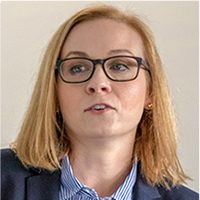 V. Kelly Turner: Turner is currently an assistant professor of geography at Kent State and her focus is human-environmental interaction and urban management. She will join Luskin Urban Planning in the fall. Her focus has been on how institutional arrangements and good metrics for resource consumption can help us build toward a more sustainable ecosystem, and she has applied this work to water resources, sustainable urbanism, and green infrastructure. She is the author of more than a dozen journal articles in publications such as Applied Geography, Ecology and Society, Urban Geography, and others.
V. Kelly Turner: Turner is currently an assistant professor of geography at Kent State and her focus is human-environmental interaction and urban management. She will join Luskin Urban Planning in the fall. Her focus has been on how institutional arrangements and good metrics for resource consumption can help us build toward a more sustainable ecosystem, and she has applied this work to water resources, sustainable urbanism, and green infrastructure. She is the author of more than a dozen journal articles in publications such as Applied Geography, Ecology and Society, Urban Geography, and others.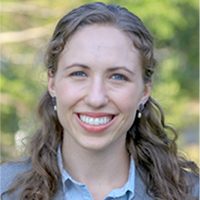 Emily Weisburst: She is finishing a PhD in economics at UT-Austin and will be joining Public Policy. Her work focuses on bias in policing, officer discretion in arrest behavior, police reform, and the effects of police presence in public schools. Weisburst previously served as a staff economist at the Council of Economic Advisors in the Executive Office of the President, and has done collaborative research for RAND and the State of Texas. Her work has been published in the Journal of Higher Education and Educational Evaluation and Policy Analysis.
Emily Weisburst: She is finishing a PhD in economics at UT-Austin and will be joining Public Policy. Her work focuses on bias in policing, officer discretion in arrest behavior, police reform, and the effects of police presence in public schools. Weisburst previously served as a staff economist at the Council of Economic Advisors in the Executive Office of the President, and has done collaborative research for RAND and the State of Texas. Her work has been published in the Journal of Higher Education and Educational Evaluation and Policy Analysis.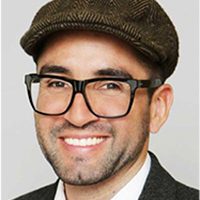 Chris Zepeda-Millan: He joins Luskin Public Policy. Zepeda-Millan is a political scientist and current professor of ethnic studies at UC Berkeley. His research focuses on social movements, immigration and communities of color, and has been published in American Journal of Political Science, Political Research Quarterly, Social Science Quarterly, and Politics, Groups and Identities. His book, “Latino Mass Mobilization: Immigration, Racialization and Activism,” was recently published by Cambridge University Press. Zepeda-Millan will be jointly appointed in the Department of Chicana/o Studies and will be working with the Latino Policy and Politics Initiative.
Chris Zepeda-Millan: He joins Luskin Public Policy. Zepeda-Millan is a political scientist and current professor of ethnic studies at UC Berkeley. His research focuses on social movements, immigration and communities of color, and has been published in American Journal of Political Science, Political Research Quarterly, Social Science Quarterly, and Politics, Groups and Identities. His book, “Latino Mass Mobilization: Immigration, Racialization and Activism,” was recently published by Cambridge University Press. Zepeda-Millan will be jointly appointed in the Department of Chicana/o Studies and will be working with the Latino Policy and Politics Initiative.